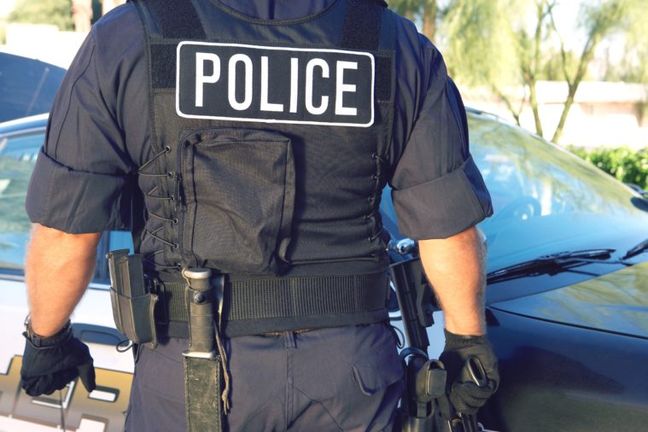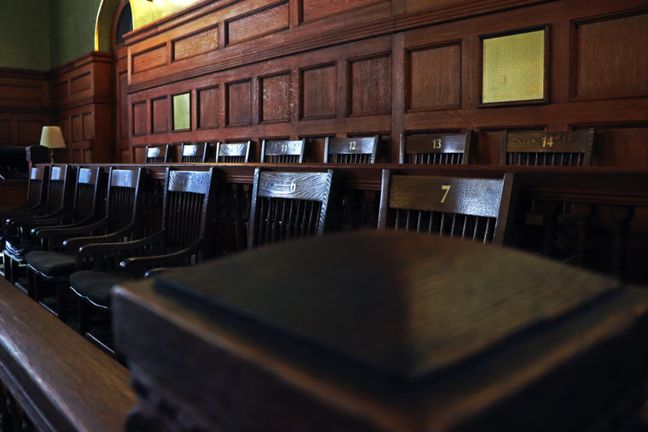Aliante Master Assoc. v. Prem Deferred Trust, No. 71026 (Nev. Feb. 23, 2018).
Background
In a recent order, the Nevada Supreme Court held a defendant homeowners’ association (HOA) is not precluded from asserting the voluntary payment doctrine as a defense to an assessment lien overcharge claim. Aliante Master Assoc. v. Prem Deferred Trust is a class action case, in which plaintiff’s class representative, Prem Deferred Trust (“Prem”) purchased property within Aliante Master Association’s (the “HOA”) community at a bank foreclosure sale for $41,000 in 2010. At the time of the foreclosure sale, the HOA had a lien on the property for unpaid assessments.
Under Nevada law at the time, an HOA’s lien also included a super-priority amount which was greater in priority to a lender’s first deed of trust. The super-priority lien amount was the equivalent of nine months of regular assessments plus any maintenance or abatement fees. See NRS 116.3116(2)(c) (2009 version). Since the super-priority portion of the HOA’s lien was superior to the banks first deed of trust, it survived the banks foreclosure sale of the property at issue.
After Prem purchased the property, it asked the HOA to provide the amount Prem would need to pay to satisfy the HOA’s lien that still remained on the property. In response, the HOA’s agent provided Prem a payoff amount of $2,871.96, an amount equal to nine months of regular assessments plus late fees and collection costs. In 2010, the law was unclear in Nevada as to whether the super-priority lien included collection costs and late fees. Then in 2014, the Nevada Supreme Court ruled the super-priority amount does not include late fees and collection costs.
Prem paid the HOA the $2,871.96 it requested to satisfy the lien on the property, which included late fees and collection costs. Less than one month after Prem purchased the property, Prem sold it for $62,000, making almost a 100 percent profit. Subsequently, Prem filed a lawsuit against the HOA claiming it violated NRS 116.3116 by overcharging Prem to satisfy the super-priority lien.
The Lawsuit
In response to the lawsuit, the HOA asserted the voluntary payment doctrine as a defense, a “long-standing doctrine of law, which clearly provides that one who makes a payment voluntarily cannot recover it on the ground that he was under no legal obligation to make the payment.” See Nevada Ass ‘n Services, Inc. v. Eighth Judicial District Court, 130 Nev., Adv. Op. 94, 338 P.3d 1250, 1252 (2014). Nevada does recognize some exceptions to the voluntary payment doctrine, such as coercion, duress, or imminent loss of property.
The HOA argued even if it overcharged Prem, Prem voluntarily paid the amount so Prem cannot now try and recover the overpayment amount. The HOA also argued there were no exceptions to the doctrine at play in this case. Prem countered by suggesting under Nevada law, a homeowner cannot waive its right to sue an HOA for a violation of NRS 116; therefore, a defendant is precluded from asserting the voluntary payment doctrine as a defense. NRS 116.1104 states: “Except as expressly provided in this chapter, the provisions may not be varied by agreement, and rights conferred by it may not be waived.” Furthermore, NRS 116.4117 states a homeowner may sue an HOA for a violation of NRS 116. Prem also argued common law defenses were barred by the language of the statute.
Prem filed a motion for summary judgment on the voluntary payment doctrine issue (and several others), which the district court granted, finding the common law voluntary payment doctrine contemplates a type of waiver that NRS 116.1104 prohibits. The HOA appealed.
The Appeal
On appeal, the Nevada Supreme Court agreed with the HOA, finding that NRS 116.1104 does not bar a defendant from asserting the voluntary payment doctrine:
While NRS 116.4117 together with NRS 116.1104 confer the non-waivable right to bring a civil suit for failure to comply with the rights conferred by Chapter 116, allowing parties to assert affirmative defenses after suit has been filed does not affect this right. Thus, allowing Aliante to assert the affirmative defense of the voluntary payment doctrine to Prem’s claims does not equate to Prem waiving its right to bring a civil action under NRS 116.4117.
In addition, the Court determined that common law defenses, such as the voluntary payment doctrine are not precluded under NRS 116: “’the principles of law and equity . . . supplement the provisions of this chapter, except to the extent inconsistent with this chapter.’ Consistent with NRS 116.1104, the application of common law affirmative defenses are ‘expressly provided’ for in NRS 116.1108.”
The Nevada Supreme Court then remanded the case to the district court to proceed with the case in a manner consistent with the ruling.
The Takeaway
While this opinion is an unpublished order of the Nevada Supreme Court in one class action case, its effect will be much greater. There are currently over hundred similar overpayment cases in the Nevada district courts, many of them class actions and all involving similar facts. Therefore, for the plaintiffs in these cases to prevail, they will now have to prove their payments to the HOAs were not voluntary and an exception to the doctrine applies. However, based on the large profit margins the plaintiffs appear to have made with quit resales of these properties, it appears the plaintiffs will have an uphill battle.
This opinion is also significant due to the Nevada Supreme Court’s confirmation that other common law defenses and rights may be asserted in cases involving provisions of NRS 116, because “unless specifically displaced by this statute, common law rights are retained.”

 Author: Christopher Lund
Author: Christopher Lund
 Cannabis Workers Allege Quota to Trim 4 Pounds a Day Violates the California Labor Code
Cannabis Workers Allege Quota to Trim 4 Pounds a Day Violates the California Labor Code
 The Ninth Circuit Reminds Us: Every Word Matters
The Ninth Circuit Reminds Us: Every Word Matters
 NO WAY, PRO SE! The Consequences of Abusing the Judicial System as a Pro Se Litigant in Colorado
NO WAY, PRO SE! The Consequences of Abusing the Judicial System as a Pro Se Litigant in Colorado
 Victim of Financial Mismanagement or Unlawful Retaliation? New Jersey City University Program Founder Claims School Retaliated After Reporting Alleged Sexual Harassment
Victim of Financial Mismanagement or Unlawful Retaliation? New Jersey City University Program Founder Claims School Retaliated After Reporting Alleged Sexual Harassment
 “Real Housewives” Gets a Reality Check
“Real Housewives” Gets a Reality Check
 Missing a Chapter: Insufficiency of Expert Deposition Testimony in Medical Malpractice Litigation
Missing a Chapter: Insufficiency of Expert Deposition Testimony in Medical Malpractice Litigation
 Crash Course: Why Summary Judgment Misses the Mark in Illinois Multi-Cause Limousine Crash Collision
Crash Course: Why Summary Judgment Misses the Mark in Illinois Multi-Cause Limousine Crash Collision
 Bitter Truths: Lead, Cadmium, and Defective Pleadings in California Chocolate Class Action
Bitter Truths: Lead, Cadmium, and Defective Pleadings in California Chocolate Class Action
 The Law of Unintended Consequences: Including Insurance Brokers in Litigation Strategy Communication May Waive the Attorney-Client Privilege
The Law of Unintended Consequences: Including Insurance Brokers in Litigation Strategy Communication May Waive the Attorney-Client Privilege
 Federal Judge Throws Out Portion of Coverage Lawsuit in Nevada
Federal Judge Throws Out Portion of Coverage Lawsuit in Nevada
 Defenses Raised in an Answer Can Be Waived if Not Timely Reaffirmed in Discovery
Defenses Raised in an Answer Can Be Waived if Not Timely Reaffirmed in Discovery
 Nevada Court of Appeals Refuses to Define Breach of the Peace for Self-Help Repossession
Nevada Court of Appeals Refuses to Define Breach of the Peace for Self-Help Repossession
 Defendants Entitled to Attorney Fees as Prevailing Party in Voluntary Dismissal Cases Under Certain Circumstances
Defendants Entitled to Attorney Fees as Prevailing Party in Voluntary Dismissal Cases Under Certain Circumstances
 Nevada Limits Access to Police Body Camera Footage
Nevada Limits Access to Police Body Camera Footage
 Nevada Clarifies Exceptions to the American Rule of Attorney Fees
Nevada Clarifies Exceptions to the American Rule of Attorney Fees
 Actual Notice and Mailing Checks in Nevada
Actual Notice and Mailing Checks in Nevada
 Jury Demand within Complaint is Insufficient in Nevada
Jury Demand within Complaint is Insufficient in Nevada